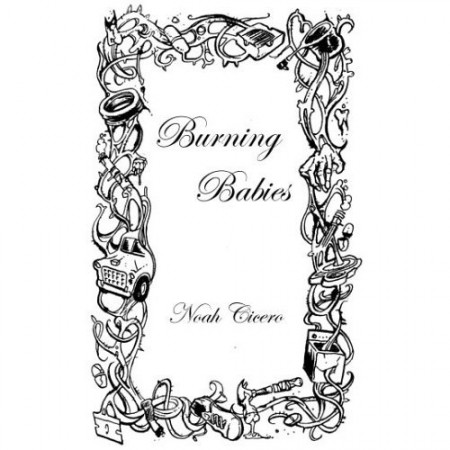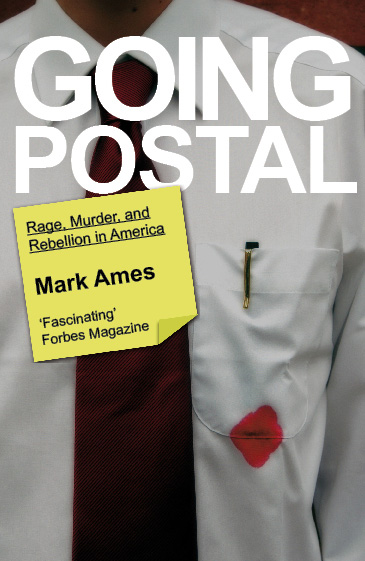
First, a public confession: as several readers pointed out, I made a disgraceful error in my article “Frey’s Fall” (eXile #230), when I mis-identified Ralph Wiggum as “Ralph Wiggins.” There is, of course, no “Wiggins” in the Simpsons. There can be no excuse for this sort of failure. The only question is deciding my punishment. If I were a Frey-sized target, we could ask Oprah to have me on, so she could spit in my face in front of a live audience. But as many Frey fans were at pains to remind me, I don’t deserve an honor like that, because I’ll never sell enough books to merit Oprah’s spittle.
Noah Cicero’s book Burning Babies will probably never make it onto Oprah’s list. Cicero, thank God, isn’t uplifting. His characters don’t learn. Or change. Oprah’s fans want transformations, plausible or not.
And after reading Cicero’s stories of life among the drooling idiots who inhabit his home town of Vienna, Ohio, you have to sympathize with Oprah’s fans. If you spent your life with these pigs, you’d have a pretty good reason to dream of characters getting reformed, redeemed, reconciled, indeed any “r” word except “reality.” Cicero’s setting is white-trash middle America, and although he could easily slip into the sentimental vogue in “working-class” bathos he never does. He has, instead, a healthy lack of respect for the mean, stupid people of the Heartland. When he describes his trip to a hometown bar, you’re initially puzzled and annoyed by what seems disingenuously naive, simple narrative:
 “Burning Babies” – by Noah Cicero Undie Press 2005
“Burning Babies” – by Noah Cicero Undie Press 2005“How to Handle A Crack Head
Last weekend I went to a bar in my hometown.
Which isn’t very far from where I am now.
But I never go there anymore.
The last time I went there my tent,
sleeping bag and two books got stolen out of the backseat of my car.
I’ve been pissed at my people ever since.”
This sample shows how slowly Cicero’s stories start, and how irksome his poetry-style linebreaks can be. What keeps you going is a wary fascination, playing along to see what the catch is, what the punchline’s going to be. As it turns out, there’s rarely a single big punchline, but there are smaller jokes growing out of the very staleness of the story, like that line “I’ve been pissed at my people” with its Prophet-like judgment of the tribe for the theft of a tent, sleeping bags, and two books from Cicero’s car. This is a tale told by an idiot, only the idiot’s not as stupid as he looks. He seems to be blathering aimlessly, but toward the end, his Ralph-Wiggum sounding pile of sentences suddenly zaps into a very clear, cruel picture of life in Vienna, Ohio. So, in “How to Handle A Crack Head,” Cicero belches sentence after sentence at you-you can almost imagine yourself nodding awkwardly at this bleary drunk’s carefully-piled assertions. But by the time you finish the story, or poem, or whatever he wants me to call these things, you’ve been inside that bar, you will remember the “Crack Heads” who talked to him, and you will never think of rural Ohio the same way.
Cicero also has enough sense not to overload his stories. “Crack Head” ends like most of these pieces, with precisely-recorded whitetrash dialogue, sly deadpan humor, and self-conscious awkwardness at having to end the story:
“I stayed in the bar, eventually Mike came back in and said, ‘Dude, I wanted to sing for
you. I can sing Metallica, early Korn, all kinds of shit man.”
I fucking told you.
I told you he was going to annoy the hell out of me, and for sure ask for money.
The band went on and Mike and I watched.
Between each song break he sang to me, a pretty good singer.
There was a lot of truth in that bar.
That’s all I want to say about that.”
If you have any ear for prose, you’ve heard the wrenching awkwardness of those last two lines. Until then, Cicero’s voice is perfect; earnest, flat, grimly fair (“a pretty good singer”). Then he hurts your ear with two lines displaying amateurish writhing in an attempt to end the story–first the pompous non sequitur “There was a lot of truth in that bar” and finally the meat-chopper desperation of “That’s all I want to say about that,” brought down like a big sign saying “The End” behind which the squirming narrator can flee.
As usual, the simplest way to see what these lines do is to put your finger over them and see how the ending would read if they were gone. When I try that, I realize that if the story ended at “…a pretty good singer,” Cicero would stand revealed as a proficient writer, ending on a light touch of compassion for the idiot who annoys him to death with his pointlessly good voice.
Now take your finger off and read the story with those last two lines. You’ll notice that they have a remarkable effect on the way you finish the story, distracting you from that sad encounter with Mike’s singing and forcing you to watch the seemingly amateurish narrator squirm out of the spotlight.
It’s a good strategy, and Cicero is remarkably proficient in it. That’s not to say that he sits around thinking, “Aha! I’ll hide the pathos by staging an awkward exit from the story!” Writers just play around with variants until they find one they like; only a fool would try to bring to consciousness all the reasons one ending works better than another. But conscious or not, this guy knows how to throw his voice.
Read more: book review, Non-fiction Books, John Dolan, eXile Classic


Got something to say to us? Then send us a letter.
Want us to stick around? Donate to The eXiled.
Twitter twerps can follow us at twitter.com/exiledonline















Leave a Comment
(Open to all. Comments can and will be censored at whim and without warning.)
Subscribe to the comments via RSS Feed